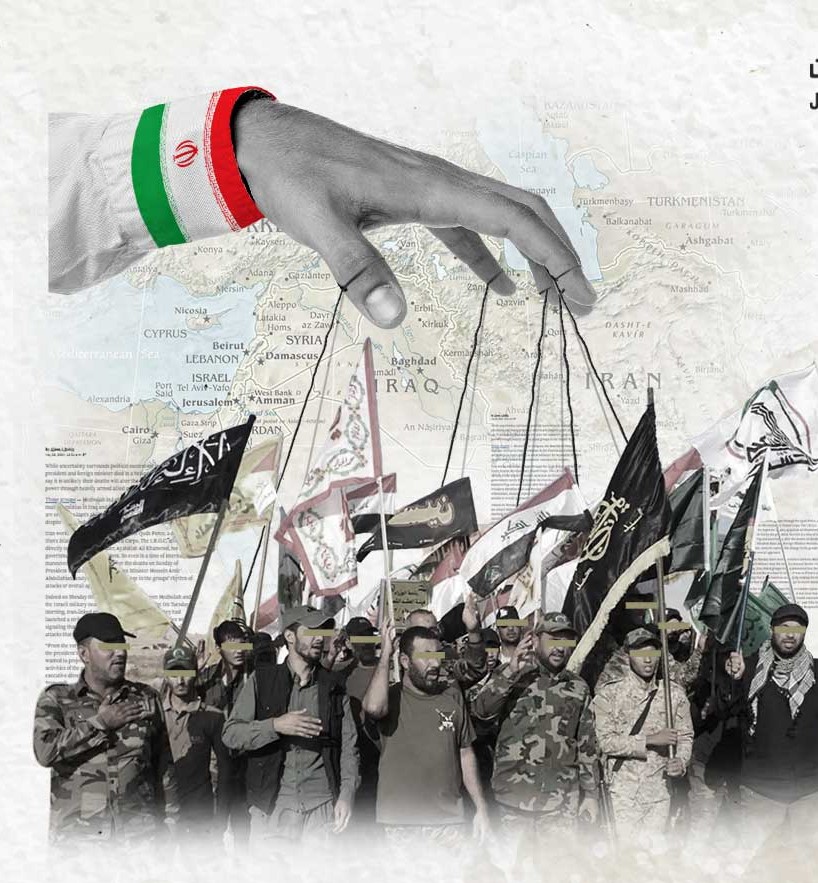One of the clearest indicators of a failed state is its inability to attain political and economic independence, coupled with its failure to ensure development and social justice for its citizens. In today’s world, it is evident that the morally bankrupt Iraqi government consistently seeks to declare its loyalty not to its own people, but to foreign oppressors, terrorists, and traitors. This government not only disregards the massacres and injustices committed by these forces but actively works to glorify them. It turns a blind eye to atrocities, and, worse, fabricates myths and lies to elevate the very individuals responsible for oppression.
This was made blatantly evident when the Iraqi government, under the leadership of Mohammed Shia’ Al-Sudani and the pro-Iran militias, took the unprecedented step of being the first Arab country to declare a three-day mourning period for the death of Hassan Nasrallah, the Secretary-General of Hezbollah, a globally recognized terrorist organization. This raises the question: What does the Iraqi government hope to achieve with such an action? Was this a carefully considered decision, or simply a directive from Iran, the true power behind the Iraqi government? Is this an official declaration of defiance against Iraq’s neighbors, or a bold gesture of support for the Shiite bloc in the region?
One may ask whether the Sudani government has conveniently forgotten that the man they are mourning is the leader of a terrorist organization, one that is on the United Nations’ list of global terrorists. Hassan Nasrallah’s hands are stained with the blood of innocent people, not just in Lebanon, but also in Syria, Yemen, Iraq, and beyond. He and Hezbollah have been directly responsible for numerous assassinations and acts of terrorism across the Middle East. Furthermore, their involvement in global drug trafficking only compounds the damage they have inflicted.
Is the Sudani government, along with its militias, positioning Iraq to become entangled in a proxy war, once again serving foreign interests at the expense of the Iraqi people? Why does this government not rein in its militias, who seem eager to drag the nation into a conflict in which Iraq has no stake? The actions of the Sudani government demonstrate recklessness and a blatant disregard for the safety of its citizens. As a government that serves Iran’s interests rather than those of Iraq, is it necessary to take such an action now? It is clear that every decision the Iraqi government makes seems to serve Tehran’s agenda; the Iraqi state has become a puppet, manipulated by Iran and the militias loyal to it.
At this critical juncture, aligning with Iran is a strategic miscalculation of significant proportions, especially given the prevailing regional dynamics and the growing international consensus against Tehran’s influence. Iraq’s support for Iran risks not only entangling the nation in a potential conflict with Israel but also positioning it on the wrong side of an uneven and perilous confrontation with its regional neighbors, many of whom are increasingly unified in their opposition to Iranian hegemony. In such a volatile geopolitical landscape, where the major power is against Iran, Iraq’s continued backing of its eastern neighbor is a gamble that undermines its own national interests. It raises the question of how Iraq can reconcile this support with its need for stability and development, especially when the global narrative, as well as the majority of regional actors, are aligned against Iran. Rather than securing Iraq’s future, such an alliance threatens to isolate the country further, drawing it into conflicts that serve neither its sovereignty nor the well-being of its people.
It would be wise for this government to reflect on Iraq’s harmful past, particularly under the rule of the tyrant Saddam Hussein, whose reckless and arrogant decisions led Iraq into numerous wars, causing immeasurable suffering and devastation. Saddam’s unilateral decision-making plunged the country into ruin, and the current government appears to be on a similarly dangerous path. A truly wise government would prioritize avoiding conflict, bloody confrontations, and security breakdowns, instead focusing its energy on ensuring stability and not repeating the failed experiments of the past. These failures are exactly what invited foreign intervention and ignited wars in the region.
Simultaneously, Iraq’s leadership stands to gain invaluable insights from the strategic decisions made by neighboring nations that have either adopted a neutral stance or took a stance against Iran. Over the past two decades, there has been no discernible advantage in forging alliances with Iran; regrettably, Iraq has yet to internalize this critical lesson. The enduring solidarity among Arab countries in opposition to Iran should serve as a compelling impetus for the Iraqi government to reassess its policy choices and align its actions with the nation’s best interests. To effectuate meaningful change, it is essential for Iraq to pursue a course that eschews detrimental alliances and inherent risks, thereby striving for independence from Iranian influence while reevaluating its diplomatic relations.

I truly feel sorry for all the countries that are under the influence of Iran. The impact of such control often brings hardship and instability, hindering the growth and prosperity of these nations.
Al-Sudani cares more about Iran than its people. Mourning Nasrallah makes Iraq look weak and puts it in danger. Iraq should focus on its own stability, not follow foreign agendas.
Iraqi government cares more about Iran than its own people and it makes many sad and angry